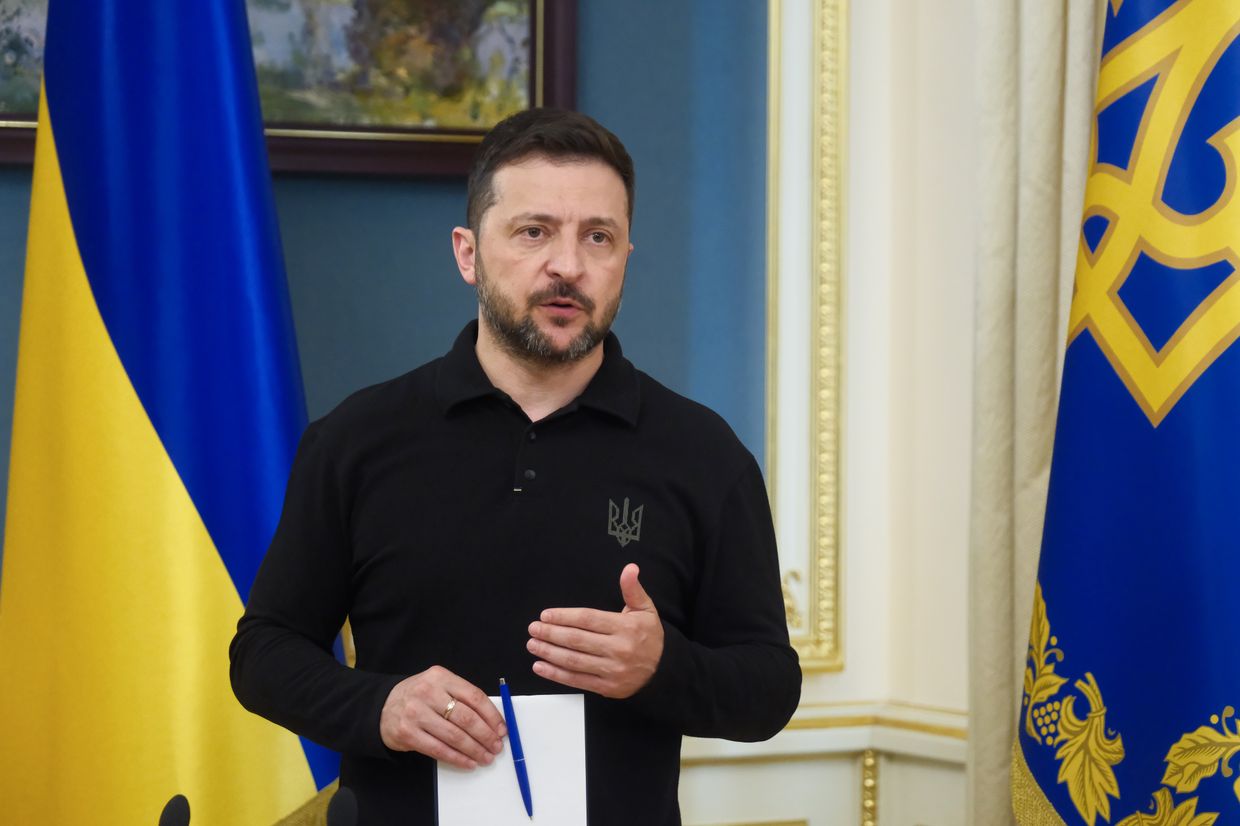'Dangerous and cruel' — Trump's reported Crimea proposal sparks horror among Ukraine's lawmakers

US President Donald Trump (L) and Russia's President Vladimir Putin shake hands at the Presidential Palace in Helsinki, on July 16, 2018 (Yuri Kadobnov / AFP)
Reports that the U.S. could formally give de jure recognition to Russia's control over Crimea have landed like a bombshell in Kyiv, with lawmakers unanimous in their opposition to such a move, as well as issuing grave warnings about its potential consequences.
"(The potential recognition of Crimea's annexation) sets a very dangerous precedent that could plunge the world into numerous wars," Volodymyr Ariev, a lawmaker with the European Solidarity Party, told the Kyiv Independent.
"Ukraine should not side with those intending to violate the fundamental principles established after World War II," he added.
The Trump administration's final proposal for ending the Russia-Ukraine war included U.S. de jure recognition of Russia's control over Crimea, along with de facto recognition of its occupation of other Ukrainian territories, Axios reported on April 23, citing sources.
The news supports earlier reporting that the recognition of Russia's occupation of Crimea and a ban on Ukraine joining NATO are being considered as part of a U.S.-backed proposal to end the war.
Yelyzaveta Yasko, a lawmaker from the Servant of the People party, told the Kyiv Independent that she "really fears" the question of recognizing Crimea being raised during negotiations.
"I don't like it. I cannot imagine us agreeing to this if it's real de jure recognition, if I'm honest. If it was de facto then we could, but de jure is too much" she said.
De facto recognition would mean accepting that where Russian troops are in control of Ukrainian territory, at least for the foreseeable future, they remain so.
But it would leave open the option of the land returning to Ukraine, potentially by diplomatic means, something President Volodymyr Zelensky has previously acknowledged could be the only way to regain control of Crimea.
De jure recognition, however, would be final — an admission that the land in question is under Russian control and will remain so indefinitely. The only means of reversing it would be by force.
Russia occupied Ukraine's Crimean Peninsula in February 2014. In March 2014, the Russian-controlled Crimean parliament voted to hold a "referendum" to join Russia.
The sham voting on annexation was conducted in the absence of any international observers and with armed Russian soldiers present at polling locations.
Ukrainian lawmakers who spoke to the Kyiv Independent said recognizing Russia's de jure control of the peninsula is next to impossible.
"The Ukrainian Constitution does not provide for the recognition of its territories as being seized by another (country)," Ariev said.
According to the Ukrainian Constitution, Crimea is a legally recognized and inseparable part of Ukraine.
No acts can be passed by the Ukrainian government that contradict the country's Constitution.
The only way Ukraine could legally recognize Crimea as Russian would be to hold a referendum on the issue and put the vote to the people. While recent polling shows the number of Ukrainians willing to make territorial concessions to end the war has risen, a majority still oppose the idea.
Further, polling has not specified between de facto and de jure control, with de jure likely to be more heavily opposed than de facto.
"No Ukrainian government has a mandate to recognize Crimea as Russian," Halyna Yanchenko, a lawmaker from the Servant of the People party, told the Kyiv Independent.
"Any peace agreement that includes such a provision would risk sparking unrest within the country. That’s why no Ukrainian leadership would ever agree to it.
"And there is simply no chance such a deal would pass a vote in Ukraine’s Parliament."
Ukraine finds itself in what Zelensky on April 22 described as "a very dangerous moment," with the U.S. threatening to back out of the peace effort if Kyiv doesn't agree to its proposal.
Talking to journalists during a visit to India, U.S. Vice President JD Vance said that it is time for Kyiv and Moscow "to either say yes or for the United States to walk away from this process."
All of this risks playing into the hands of the Kremlin, with both Moscow and Washington potentially being able to point to Ukraine's refusal as the main sticking point of negotiations.
"Ukraine will never agree," Oleksandr Merezhko, lawmaker and chair of the parliament's foreign affairs committee, told the Kyiv Independent.
"It will be considered as a provocation with a view (for the U.S.) to exit negotiations and to put the blame on the victim of the aggression."
Ariev said that if the U.S. follows through with the move, it could "open Pandora's box globally."
"Recognizing territory seized by military means — this would be the first such recognition since World War II — sets a dangerous precedent that could reignite wars in the future, which could potentially reach the scale of World War III," he said.
"This is extremely dangerous and cruel."












